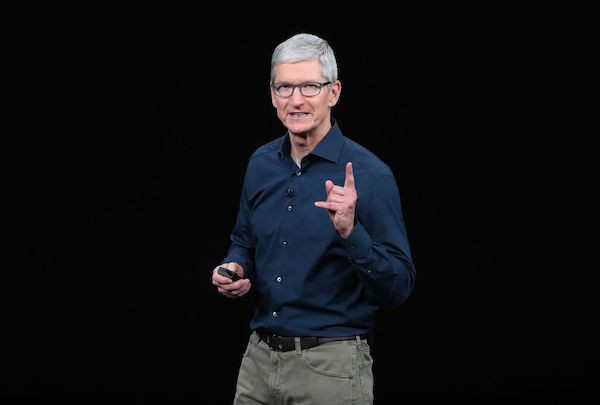Apple Earnings: 3 Questions For CEO Tim Cook

In a busy week for corporate earnings, Apple (NASDAQ:AAPL) is scheduled to report its fiscal first-quarter results on Tuesday. The results are an opportunity for the tech giant to reinvigorate investor confidence in the company after announcing earlier this month that revenue for the quarter would be much softer than expected.
Investors already know a few things about the quarter, including the company's approximate revenue of $84 billion (below guidance for $89 to $93 billion) and its gross margin of about 38%. But there are some big questions investors will be looking to have answered during the update, particularly as it relates to the company's slowing iPhone business.
When Apple CEO Tim Cook joins the company's earnings call on Tuesday afternoon, here are three questions investors will be hoping the CEO answers.
1. Can iPhone return to growth?
Ahead of Apple's fiscal first-quarter results, we know that the tech giant's iPhone business is in decline for the period. When discussing Apple's preliminary update on fiscal first-quarter revenue of $84 billion (down 5% year over year), Cook said in a letter to shareholders earlier this month, "Lower than anticipated iPhone revenue, primarily in Greater China, accounts for all of our revenue shortfall to our guidance and for much more than our entire year-over-year revenue decline."
With iPhone accounting for 63% of Apple's trailing-12-month revenue, it's no surprise that investors were concerned that the company's iPhone business is in decline. The stock sold off more than 10% the day after Apple shared its preliminary figures for the quarter.
With this background in mind, analysts will likely use the earnings call to pick Cook's brain about his thoughts on the longer-term potential for iPhone. Can the key segment return to growth?
2. How important is the iPhone upgrade program?
With fewer customers upgrading their iPhones over the holidays than management was expecting, analysts may turn some of the call's attention to the iPhone upgrade program.
Launched in 2015, Apple's iPhone upgrade spreads the cost of the device over monthly payments and includes AppleCare+. Members of the program are eligible to upgrade their iPhones every year. The program strives to make upgrading to a new iPhone every year easier.
Investors should look to see if management gives extra details on how material the plan is to its current customer base. In addition, analysts may ask about whether there's room for improvement in the program.
3. What can investors expect from services beyond 2020?
A few years ago, Apple laid out a bold plan for its services business: The segment's fiscal 2016 revenue would double by fiscal 2020. This would put the segment's annualized revenue at nearly $50 billion in fiscal 2020.
But with Apple's services revenue already at $37 billion in fiscal 2018 and given that the segment's revenue rose 24% year over year during the period, Apple's target now seems conservative. As iPhone sales struggle, investors may be hoping for a bolder target for Apple's services business over the long haul. Does management have a new goal for the business beyond 2020?
Apple will report its fiscal first-quarter results after market close on Tuesday. In addition, management will host a live question-and-answer session with analysts at 2:00 p.m. PST on the same day.
This article originally appeared in the Motley Fool.
Daniel Sparks owns shares of Apple. The Motley Fool owns shares of and recommends Apple. The Motley Fool has the following options: long January 2020 $150 calls on Apple and short January 2020 $155 calls on Apple. The Motley Fool has a disclosure policy.





















